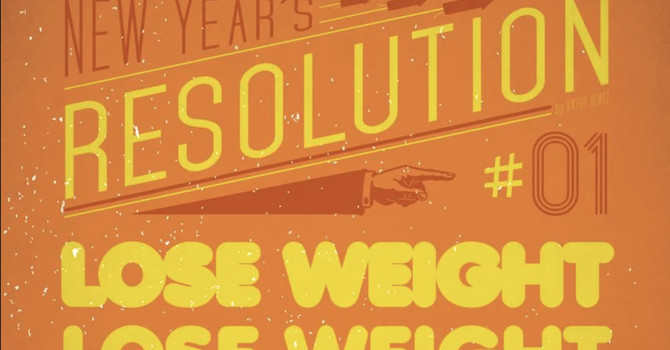
Losing weight feels like a battle for many of us, a relentless struggle where the scales seem to mock our efforts, refusing to tip in our favor. This journey often leads us to question, "Why am I not losing weight in a calorie deficit?" Read on to learn why you may be asking this question - and the solution which doesn't involve counting calories at all!
It's a common predicament, stirring a mix of frustration and confusion. Despite following the rules, cutting down on calories, and hitting the gym, the expected results just don't show up. The concept seems pretty straightforward: eat less, move more, and watch the pounds drop off.
If you're stuck in this weight loss conundrum, wondering why the numbers on the scale won't budge, you're not alone. Keep reading to uncover insights that might just be the key to unlocking your weight loss journey.
Understanding Calorie Deficit
When we talk about losing weight, the term "calorie deficit" often takes center stage. But what does it really mean? A calorie deficit occurs when you consume fewer calories than your body expends for energy. It's the cornerstone of weight loss, a "simple" equation that dictates whether you'll shed pounds or stay the same.
What is a Calorie Deficit?
At its core, a calorie deficit is just subtracting the calories you burn in a day from the calories you take in in a day. Your body requires a certain number of calories to maintain its current weight. Consuming less than this amount (should!) force your body to tap into stored fat for energy, leading to weight loss.
This process is typically shown as the only way that weight loss works. But is it?
The Role of Calorie Consumption
The importance of calorie consumption has been too simplified and overstated. It's not just about eating less but eating right. Quality of food plays a crucial role, as 500 calories of vegetables and lean protein will fuel your body differently than 500 calories of sugar-laden snacks.
Common Misconceptions About Calorie Counting
Navigating the world of calorie counting is just full of misconceptions - which is frustrating. Two of the biggest culprits in sabotaging weight loss efforts are overestimating the calorie burn from physical exercise and underestimating the way the calories we are eating are making our bodies react
Overestimating Calorie Burn
Many of us fall into the trap of thinking that our workout sessions burn more calories than they actually do. This overestimation can lead to a false sense of security, making us more likely to indulge post-exercise, believing we have calories to spare.
The reality is often less generous, and without accurate tracking, we can easily offset our hard work at the gym with just a few extra bites. This is super frustrating because we are doing all of the right things!
Underestimating Calorie Intake
On the flip side, it's shockingly easy to underestimate how much we are intaking. Packaged foods are purposely designed to keep us less full (to eat more) and these chemical compositions cause our digestion and sugar response to change. Portion sizes are also really deceptive, stalling or even reversing weight loss progress.
Why Am I Not Losing Weight in a Calorie Deficit?
It's a question that plagues many on their weight loss journey. The answer isn't always straightforward and can involve a mix of hidden calories, inaccurate tracking, the nuanced role of physical exercise, and the dreaded weight loss plateaus.
It's not just the hidden calories adding up...
Going hard at the gym and then not re-fueling properly can potentially lower your metabolism. This adaptation can slow down weight loss over time, leading to plateaus.
Health Issues That Can Affect Weight Loss
Health issues such as thyroid disorders and insulin resistance can significantly impact your weight loss efforts. Thyroid disorders can slow down your metabolism, making it harder to lose weight, while insulin resistance can increase fat storage, especially around the abdomen.
These conditions can create barriers to weight loss, despite maintaining a calorie deficit.
The Role of Sleep and Stress
Lack of sleep and high stress levels are also critical factors that can hinder your weight loss. Poor sleep can affect the hormones that regulate hunger, leading to increased appetite and cravings for unhealthy foods.
Stress, similarly, can trigger the release of cortisol, a hormone that promotes fat storage and can make losing weight more challenging. Addressing these aspects of your lifestyle is essential for overcoming weight loss plateaus.
Overcoming Weight Loss Plateaus
Hitting a plateau in weight loss is like hitting a wall, but you can get past it. The trick is to change up how much you eat and your workout routine. Sometimes, eating a little less or exercising a bit more can kick-start your body again. Sometimes, it's the opposite! Trying new kinds of exercises can also help shake things up and get the scale moving.
If you think your health or a hormonal imbalance might be making it hard to lose weight, it's a good idea to talk to a doctor. They can check things out and give you advice that's right for you. Making these changes can help you get past the plateau and keep losing weight in a healthy way.
Achieve Your Weight Loss Goals Without Counting Calories
If you're asking yourself, "Why am I not losing weight in a calorie deficit?" it might be time to explore new strategies.
The Ascend Slim program is different - focusing on natural supplements and low glycemic, anti-inflammatory foods to ensure your efforts are actually showing up on the scale. Stop counting calories, boost your metabolism, and reach your goals in just 6 weeks! Break through your plateau with a SIMPLE plan! Schedule your consultation today!

Ascend Aesthetics
Contact Me



